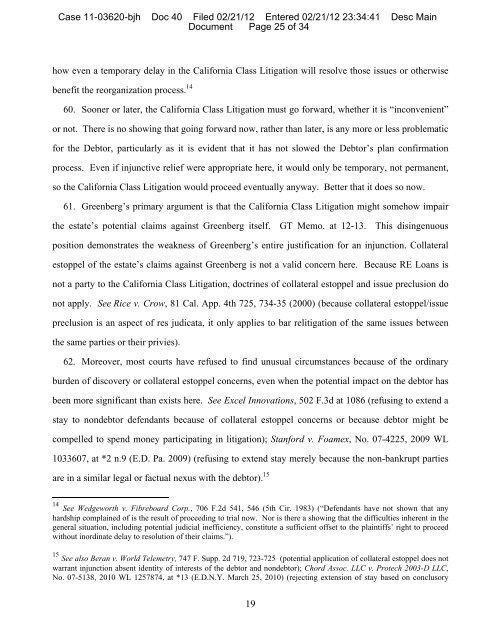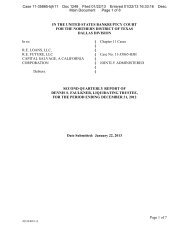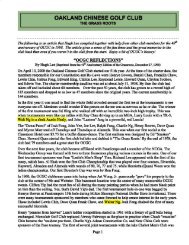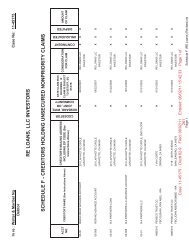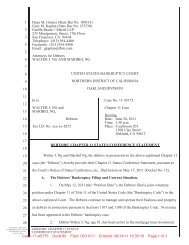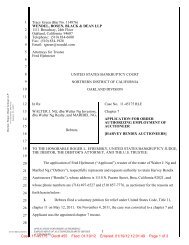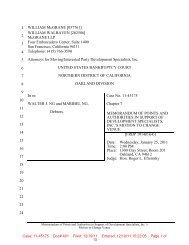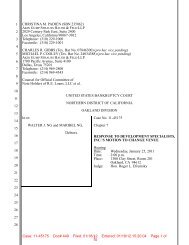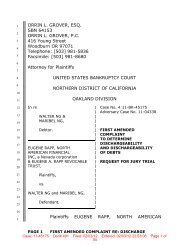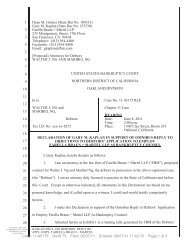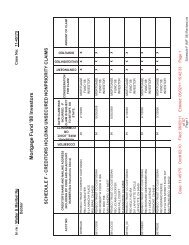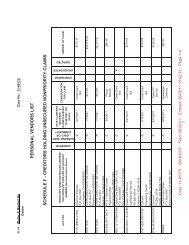Class Plaintiff's Response to Automatic Stay - equitatus
Class Plaintiff's Response to Automatic Stay - equitatus
Class Plaintiff's Response to Automatic Stay - equitatus
Create successful ePaper yourself
Turn your PDF publications into a flip-book with our unique Google optimized e-Paper software.
Case 11-03620-bjh Doc 40 Filed 02/21/12 Entered 02/21/12 23:34:41 Desc Main<br />
Document Page 25 of 34<br />
how even a temporary delay in the California <strong>Class</strong> Litigation will resolve those issues or otherwise<br />
benefit the reorganization process. 14<br />
60. Sooner or later, the California <strong>Class</strong> Litigation must go forward, whether it is “inconvenient”<br />
or not. There is no showing that going forward now, rather than later, is any more or less problematic<br />
for the Deb<strong>to</strong>r, particularly as it is evident that it has not slowed the Deb<strong>to</strong>r’s plan confirmation<br />
process. Even if injunctive relief were appropriate here, it would only be temporary, not permanent,<br />
so the California <strong>Class</strong> Litigation would proceed eventually anyway. Better that it does so now.<br />
61. Greenberg’s primary argument is that the California <strong>Class</strong> Litigation might somehow impair<br />
the estate’s potential claims against Greenberg itself. GT Memo. at 12-13. This disingenuous<br />
position demonstrates the weakness of Greenberg’s entire justification for an injunction. Collateral<br />
es<strong>to</strong>ppel of the estate’s claims against Greenberg is not a valid concern here. Because RE Loans is<br />
not a party <strong>to</strong> the California <strong>Class</strong> Litigation, doctrines of collateral es<strong>to</strong>ppel and issue preclusion do<br />
not apply. See Rice v. Crow, 81 Cal. App. 4th 725, 734-35 (2000) (because collateral es<strong>to</strong>ppel/issue<br />
preclusion is an aspect of res judicata, it only applies <strong>to</strong> bar relitigation of the same issues between<br />
the same parties or their privies).<br />
62. Moreover, most courts have refused <strong>to</strong> find unusual circumstances because of the ordinary<br />
burden of discovery or collateral es<strong>to</strong>ppel concerns, even when the potential impact on the deb<strong>to</strong>r has<br />
been more significant than exists here. See Excel Innovations, 502 F.3d at 1086 (refusing <strong>to</strong> extend a<br />
stay <strong>to</strong> nondeb<strong>to</strong>r defendants because of collateral es<strong>to</strong>ppel concerns or because deb<strong>to</strong>r might be<br />
compelled <strong>to</strong> spend money participating in litigation); Stanford v. Foamex, No. 07-4225, 2009 WL<br />
1033607, at *2 n.9 (E.D. Pa. 2009) (refusing <strong>to</strong> extend stay merely because the non-bankrupt parties<br />
are in a similar legal or factual nexus with the deb<strong>to</strong>r). 15<br />
14 See Wedgeworth v. Fibreboard Corp., 706 F.2d 541, 546 (5th Cir. 1983) (“Defendants have not shown that any<br />
hardship complained of is the result of proceeding <strong>to</strong> trial now. Nor is there a showing that the difficulties inherent in the<br />
general situation, including potential judicial inefficiency, constitute a sufficient offset <strong>to</strong> the plaintiffs’ right <strong>to</strong> proceed<br />
without inordinate delay <strong>to</strong> resolution of their claims.”).<br />
15 See also Beran v. World Telemetry, 747 F. Supp. 2d 719, 723-725 (potential application of collateral es<strong>to</strong>ppel does not<br />
warrant injunction absent identity of interests of the deb<strong>to</strong>r and nondeb<strong>to</strong>r); Chord Assoc. LLC v. Protech 2003-D LLC,<br />
No. 07-5138, 2010 WL 1257874, at *13 (E.D.N.Y. March 25, 2010) (rejecting extension of stay based on conclusory<br />
19


